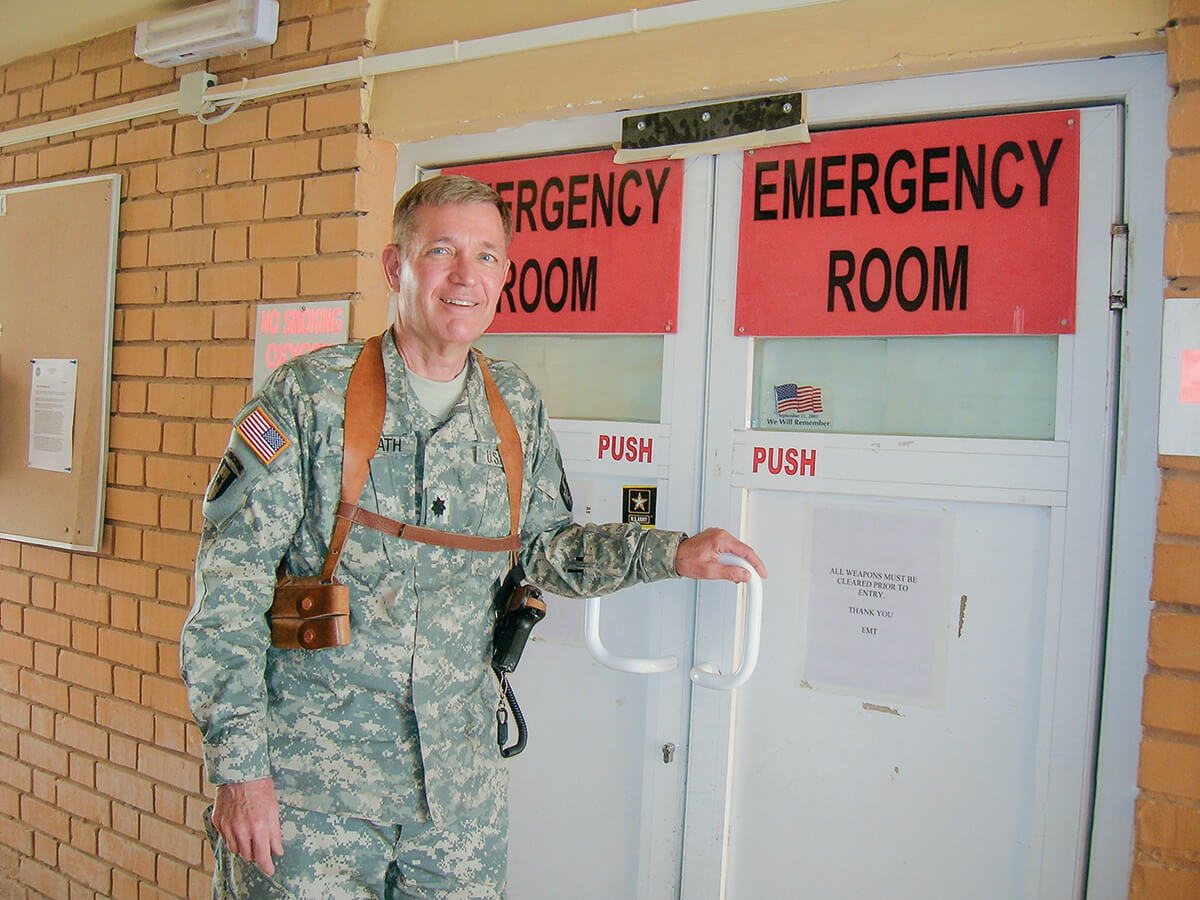connect
A Good Doctor in Trying Times
Caring for U.S. troops and enemy combatants in Iraq
 Edward Horvath, MD, entering a hospital emergency room for one of his shifts during a deployment in Iraq in 2008.
Edward Horvath, MD, entering a hospital emergency room for one of his shifts during a deployment in Iraq in 2008.It was the summer of 2008, and Edward Horvath, MD (ADL ’68), was at the Cleveland airport, leaving on another military assignment.
The ticket-counter agent noticed his uniform and said her son had served in Iraq. As they chatted, Horvath—who served in the Army Reserve Medical Corps as a combat physician—realized he’d saved the son’s life just a few months earlier.
He wrote about that extraordinary encounter and other remarkable experiences in his memoir, Good Medicine, Hard Times, (The Ohio State University Press, 2022).
Deployed to Iraq three times, Horvath retired from the Army in 2014 as a full colonel. He later received the Legion of Merit, one of the military’s highest honors.
Horvath spoke with Think about his book and why the experience at the airport changed his life.
You had a successful career, including many years as a staff physician at the VA Northeast Ohio Healthcare System. What made you enlist?After 9/11, my two sons came to me and asked what they were supposed to do now. I’d already served in the Navy. I said, ‘Your grandfathers served, I served, now it’s your turn.’ I was 57 at the time and very healthy. I thought, I’m not going to let my sons do this alone.
You treated Iraqi insurgents as well as American soldiers. Was it difficult to feel compassion for the enemy?I’ve learned in medicine that everyone has a story, and if you knew their story, you’d be much more sympathetic to them. That happened to me when I cared for the young insurgents. I learned that they’d been bribed and threatened to make them do what they were doing. It was difficult for me to hate them. Instead, I learned to forgive.
You write about meeting the mother of a soldier whose life you saved. How did that affect how you felt about your time in Iraq?He had a ruptured spleen from falling out of a helicopter. When I was pushing him across the sands into the operating room tent, he told me he lived in Lakewood, Ohio, only seven miles from my home in Bay Village. He was practically my neighbor. The soldier recovered and returned home. I thought that was that. Then I met this woman at the airport who is telling me about her son and I realized it was the same soldier. At that moment, everything became worthwhile. In a very real way, I had fulfilled my mission, which was to care for the neighbor’s kids.
What do you want readers to understand from your book?I want soldiers and their families to know that if something happens to their loved ones, they’ll have the best possible medical care. I want people to realize that military doctors care not only for our soldiers and the innocent civilians who get caught up in war, but also for our enemies. Insurgents came up to us in Iraq and asked, ‘Why are you caring for us when we tried to kill you last week?’ We said, ‘That’s what doctors do and that’s what Americans do.’





